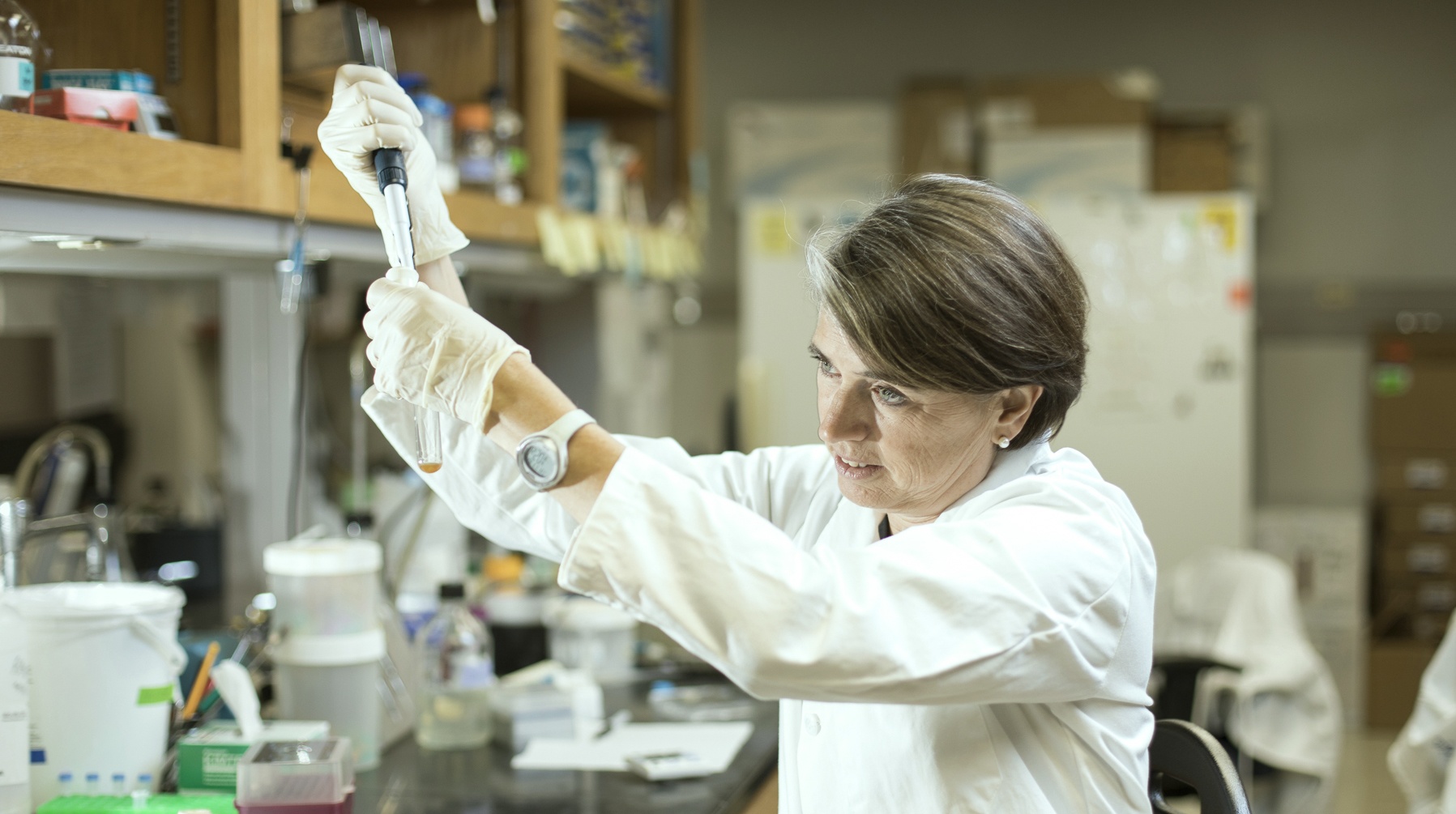With a new grant from the National Institutes of Health, OMRF will explore how chromosomes function during the process of cell division. The work could help answer questions about errors in cell division can lead to birth defects or conditions like cancer.
OMRF scientist Susannah Rankin, Ph.D., received the four-year, $1.47 million award to study chromosomes, which carry hereditary information on everything from eye color to height.
In particular, Rankin will look at protein complexes called cohesion factors. They help pack the genetic information into the nucleus of the cell, and they also help the chromosomes line up in the cell properly to ensure proper cell division.
“These tasks are not just different, they are seemingly completely unrelated,” said Rankin, a scientist in OMRF’s Cell Cycle and Cancer Biology Research Program. “How are these distinct activities of the complex controlled and integrated? This fundamental question is the basis for the grant.”
When cells divide, either to develop new tissues or to replace aging or defective cells, a precise and highly complex series of cellular events must be carefully coordinated. This coordination ensures that newly forming cells inherit the appropriate components and are able to function properly.
Because of the complex nature of these processes, Rankin said her OMRF research team is interested in learning how these processes work in a healthy, normal setting in order to better understand what happens when they go wrong.
“You can look at it sort of like a car engine. You can’t fix something that’s broken without knowing how it’s supposed to work in the first place,” she said. “These discoveries are crucial to understanding what goes wrong in certain devastating conditions like birth defects and cancer, so we can better understand how to prevent them.”
The grant, R01 GM101250, was funded by the National Institute of General Medical Sciences, part of the NIH.



